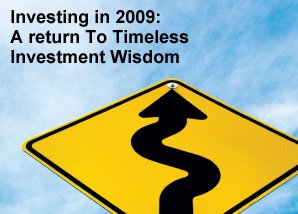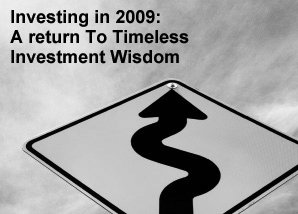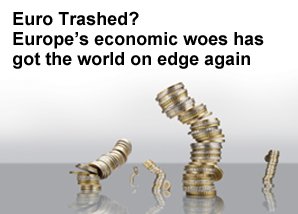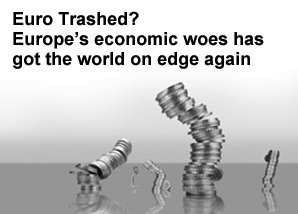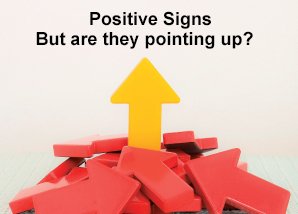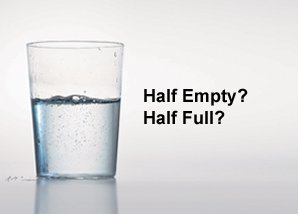Market Outlook 2012
by HSBC Global Asset Management
New Opportunities for longer-term investors
2011 started out robustly but as the year progressed, the outlook deteriorated sharply. Contributing to the volatility were key events such as the civil unrest in the Middle East which resulted in oil prices rising to a two-and-a-half year high.
Then the massive earthquake, tsunami and nuclear incident in Japan which caused supply chain issues for much of the year. Over the summer, the Eurozone debt situation crisis peaked, with the contagion spreading to larger nations like Spain and Italy. Volatility is likely to continue in 2012 as the Eurozone sovereign debt crisis remains an overhang in the near term1.
Against this background, many investors fled to what they saw as safe havens, forcing gold prices to record highs and government bonds yields to generational lows. Markets have gone from being dominated by investors with longer-term investment horizons to being driven by short-termism, as investors turn from targeting wealth generation to focusing on preserving it1. However, short-termism has created what HSBC Global Asset Management believes to be deep value emerging across asset classes which may offer opportunities for investors with a long-term investment perspective2.
Equities
Global equities are now trading at very attractive valuations relative to long-term historical levels thus offering excellent opportunities for building wealth in the longer term, as part of a balanced portfolio1. Equity dividend yields currently stand at attractive levels, compared with government bonds, while company balance sheets are enabling them to grow dividends – a very attractive combination in a low interest rate environment2.
Bonds
Within the bond universe, emerging market or Asian bonds offer solid growth and resilient performance amid a challenging global environment. Corporate bonds, as opposed to government bonds, may be considered as many companies are in solid financial shape, having applied their own austerity measures thus reducing the probability of a default. These factors support the positive outlook for corporate bonds especially at the high-yield end of the spectrum and in Asia, where fundamentals are relatively stronger3.
Emerging markets
Emerging markets offer a range of opportunities for discerning investors as fundamentals remain strong relative to developed markets. Valuations have cheapened considerably as risky assets are sold off2.
BRIC
Driven by rising domestic consumption, emerging economies such as BRIC (Brazil, Russia, India and China) are among the fastest growing economies today and continue to be supported by higher levels of consumer confidence and solid fiscal accounts. These economies are increasingly driven by domestic demand as exports as percentage of GDP falls. As such, exposure to the activities of BRIC consumers could be one way in which investors could play the dynamic emerging market consumption theme2.
In summary, the short-term view is uncertain, but for those who prefer a long-term investment horizon, this increasingly short-term world may create some rare opportunities to generate wealth. The start point may be uncertain but the eventual upside could be potentially significant1.
Source:
1. “Outlook for 2012 – Looking past the abyss.” by HSBC Global Asset Management (UK) Limited.
2. “Investment Intelligence December 2011” by HSBC Global Asset Management (Hong Kong) Limited.
3. “HSBC sees volatility creating long-term wealth opportunities in 2012”, news release issued by The Hongkong and Shanghai Banking Corporation Limited on 14 December 2011.
Besides the views of the HSBC Global Asset Management team, Feng Shui master Joey Yap also shared his thoughts on the possible impact of the Water Dragon on the world’s economy in year 2012.
Embarking into 2012
Year of the Water Dragon with Feng Shui By Joey Yap
I had predicted that the year 2011 of the Metal Rabbit would be volatile and towards the end of the year we would see the possibility of Europe abandoning the Euro as the elements of metal and wood clashed.
Before we go into the forecast, you need to understand that in Feng Shui, there are 5 Elements that come into play: Water, Wood, Fire, Earth and Metal. The 5 Elements share three types of relationships known as Cycles, through which an element can affect another element as illustrated on the chart below. Depending on the cycle, these elements Produce (grow), Control (counter) or Weaken one another.
The Productive Cycle is where the 5 Elements produce one another, – i.e. Water provides nourishment for trees (Wood), etc. It is an element that strengthens and grows the element it produces. The Controlling Cycle is where the 5 Elements keep each other under control – i.e. Fire melts Metal – which is an element countered or subjugated by its controlling element. The Weakening Cycle, on the other hand, is the reverse process of the Productive Cycle – i.e. Wood absorbs Water, therefore weakens it.
In terms of the outlook and forecast for 2012, we study the BaZi Chart of the year itself. BaZi, literally translated as Eight Characters, is known as the Four Pillars of Destiny under the study of Chinese Astrology. Developed by the Chinese, it is an ancient and sophisticated discipline of discipline of Destiny and Personality Analysis, which utilises birth information – Year, Month, Day, Time – to analyse and determine with much accuracy an individual’s path in life. In this case, we can also determine the forecast of a particular year based on the said year’s “birthday”, which falls on the February 4 of each year.
Looking at the BaZi chart, every time there is a clash between the elements such as metal and wood which happened in 2011, it normally indicates uncertainties and problems. But looking at the chart for 2012, I do not see so many clashes, contrary to what people are so afraid of 2012 being the end of the world and there would be economic disasters and all. But if we look at the chart, it is actually not that bad, though, there are still some problems compared to 2011. So after 2011, towards mid-2012, which is the Water Dragon year, we should be able to see things stabilising.
In the 2012’s BaZi Chart, there are only elements of water and wood, which do not clash with each other. If you refer to the ‘Month’ and ‘Year’ on the chart, they are yang water elements while the ‘Day’ and ‘Hour’ are yin wood elements. There are more water element as compared to the wood element. If we take cues from nature, we will know that wood floats on water. This reveals to us that we may face the possibility of a lot of water-related issues and natural disasters like floods. Meanwhile, as the Dragon and Goat are both earth elements, there could be earth-related problems such as earthquakes as well. The general theme for 2012 where water produces wood, represents healing and recovery. So towards the mid-year onwards, we may see things stabilise.
To learn more about your outlook for 2012, please visit http://www.masteryacademy.com/fsa2012
Joey Yap is the founder of the Joey Yap Consulting Group, a global organization devoted to the teaching Feng Shui, BaZi, Mian Xiang (Face Reading) and other Chinese Metaphysics Subjects. He is also the Chief Consultant of Yap Global Consulting, an international consulting firm specializing in Feng Shui and Chinese Astrology services and audits.
He is also the bestselling author of over 75 books on Feng Shui, Chinese Astrology, Face Reading and Yi Jing, many of which have topped the Malaysian and Singaporean MPH bookstores’ bestseller lists.
Log on www.joeyyap.com for more details about Joey Yap Consulting Group. He can be reached via facebook: www.facebook.com/JoeyYapFB
This article does not constitute an advertisement, offer, invitation, commitment, advice or recommendation to make a purchase of securities or enter into any such transaction. The information given in this article represents the views of Joey Yap Consulting Group. HSBC Bank Malaysia Berhad (the “Bank”) is not involved in the preparation of this article. The Bank neither endorses nor is responsible for the accuracy or reliability of, and under no circumstances will the Bank be liable for any loss or damage caused by reliance on, any opinion, advice or statement made in this article.
Investment involves risks. You should refer to the offering documents and/or relevant documents for further details. You must make your own assessment of any such transaction and the risks and benefits associated with it and of all the matters referred to above in view of your investment experience, objectives, financial resources and circumstances. You should enter into transactions only after having considered, with the assistance of your external advisors, the specific risks of any such transaction.
March 2012


 LIKE THIS ARTICLE?
LIKE THIS ARTICLE?




